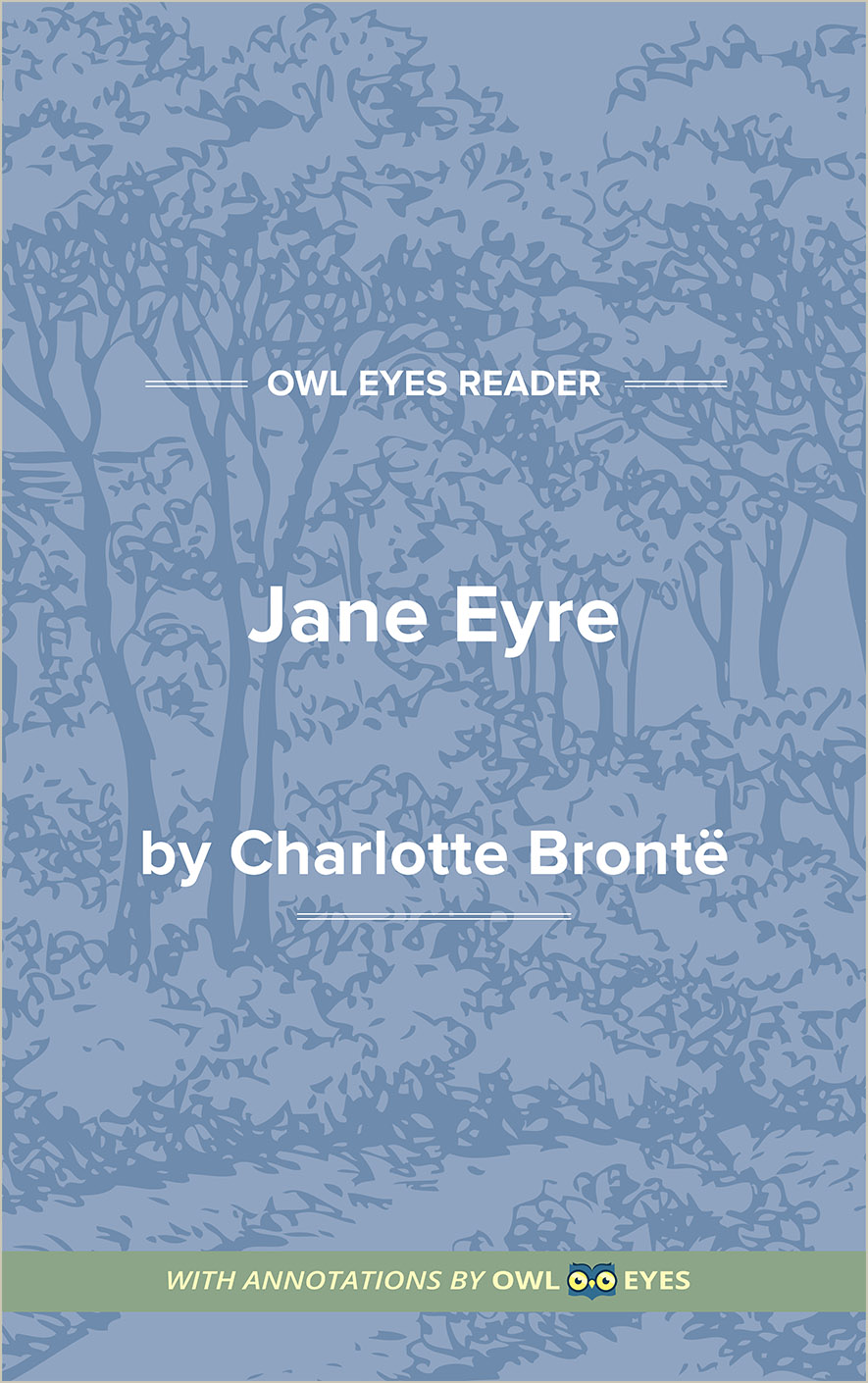Analysis Pages
Themes in Jane Eyre
Jane Eyre deals extensively with conflicting themes of independence and service. Jane was an unloved orphan for much of her life and, in order to leave Lowood, must find employment. Her gender, however, prevents her from experiencing total independence.” Still, her employment at Thornfield affords her social mobility; as a governess since she has access to the aristocracy (Mr. Rochester). Her evolution as a character is greatly influenced by religion, the supernatural (hearing things, premonitions, ghosts, etc.), and her navigation of the extremes of passionate feeling versus cold judgment. Additional themes include the following:
Gender and oppression: Jane Eyre was initially published under the pseudonym Currer Bell, because Charlotte Bronte wanted to insure that the reception of her work would not be tainted by perceptions of her own gender. Within the novel we see Jane take similar steps to distance herself from the oppressive patriarchal structures of nineteenth century England. Jane demands respect, and her dialogue with Mr. Rochester demonstrates her belief that she and he should be considered equals.
Independence: Throughout the novel Jane seeks to develop her own identity, and to become an independent woman during a time when women were expected to rely on men. Orphaned at a young age, Jane was forced to become independent early on, and accepting the position at Thornfield was an important step forward in achieving further independence as an adult.
Love and passion: In a novel with a central romantic plot it should come as no surprise that love and passion are primary themes of the text. Jane lives a passionate life, and this theme is connected to the theme of independence because her passion leads her to eschew certain societal standards or customs in pursuit of her own independence. The value Jane places on passion can also be seen with the differences between her two suitors.
Themes Examples in Jane Eyre:
Chapter I
🔒"red-room..." See in text (Chapter I)
Chapter III
🔒"a little toad..." See in text (Chapter III)
"I ought to forgive you, for you knew not what you did..." See in text (Chapter III)
Chapter XII
🔒"I am merely telling the truth..." See in text (Chapter XII)
Chapter XIV
🔒"bird through the close-set bars of a cage..." See in text (Chapter XIV)
Chapter XVII
🔒"I am a judge of physiognomy..." See in text (Chapter XVII)
"a flock of white plumy birds..." See in text (Chapter XVII)
Chapter XVIII
🔒"Mother Bunches..." See in text (Chapter XVIII)
Chapter XX
🔒"Ariel..." See in text (Chapter XX)
Chapter XXI
🔒"the equality of disembodied souls..." See in text (Chapter XXI)
Chapter XXII
🔒"a force turned me round..." See in text (Chapter XXII)
Chapter XXIII
🔒"half of it split away..." See in text (Chapter XXIII)
"For the world's judgment..." See in text (Chapter XXIII)
Chapter XXIV
🔒"Hercules and Samson with their charmers..." See in text (Chapter XXIV)
Chapter XXV
🔒"when we have been married a year and a day..." See in text (Chapter XXV)
Chapter XXVII
🔒"pass through a fair scene to the scaffold..." See in text (Chapter XXVII)
"“No; you shall tear yourself away; none shall help you: you shall, yourself, pluck out your right eye: yourself cut off your right hand: your heart shall be the victim; and you, the priest, to transfix it.”..." See in text (Chapter XXVII)
Chapter XXVIII
🔒"I have no relative but the universal mother, Nature: I will seek her breast and ask repose...." See in text (Chapter XXVIII)
Chapter XXX
🔒"which passeth all understanding..." See in text (Chapter XXX)
Chapter XXXI
🔒"“The air was mild, the dew was balm”..." See in text (Chapter XXXI)
Chapter XXXII
🔒"In spite of his Christian stoicism..." See in text (Chapter XXXII)
Chapter XXXIII
🔒"from indigence to wealth..." See in text (Chapter XXXIII)
Chapter XXXV
🔒"violent, unfeminine, and untrue..." See in text (Chapter XXXV)
Chapter XXXVII
🔒"“Which are none, sir, to me. I love you better now, when I can really be useful to you, than I did in your state of proud independence, when you disdained every part but that of the giver and protector.”..." See in text (Chapter XXXVII)
"do you think I feared him in his blind ferocity?..." See in text (Chapter XXXVII)
"sightless Samson..." See in text (Chapter XXXVII)
Chapter XXXVIII
🔒"Amen; even so come, Lord Jesus!..." See in text (Chapter XXXVIII)
"take up his cross, and follow me...." See in text (Chapter XXXVIII)

